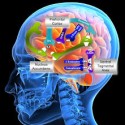Alcohol effects during adolescence
The festive season has come and gone.
The fun will forever be cherished by those who had a fabulous time.
Some will forever cherish the fun they had while others will reflect at the bad things they did.
It is definitely an indisputable fact that some young blades are now addicted to the things they should not, especially drinking alcohol.
Adolescence is a transition when the body is undergoing many significant changes, such as hormonal alterations and brain development.
It is also a time when young people associate more with friends and associates beyond their childhood contacts.
They feel an increased pressure to “fit in or go along with the crowd” in order to be accepted socially.
These new circumstances can be confusing and difficult for the youth to understand and deal with. Often their ability to make correct or safe decisions is also at a stage of immaturity.
Exposing the brain to alcohol during this period may interrupt key processes of brain development, possibly leading to mild cognitive impairment as well as to further escalation of drinking habits.
Alcohol is absorbed rapidly into the blood stream from the stomach lining, in as short a time as 5 to 10 minutes and it’s effects last for several hours, depending on the amount ingested and how quickly it was consumed.
Females absorb alcohol faster than males because their bodies contain less water.
The water dilutes the alcohol and so the same amount of alcohol will cause a higher concentration in the blood.
After consuming only 2 to 3 normal strength beers, or 4 to 5 standard glasses of wine, most people will feel less inhibited and more relaxed. After consuming anything in excess of this amount, most people slur their speech and become less co-ordinated and clumsy.
Some people have increased emotional reactions.
More alcohol could result in staggering, double vision, and loss of balance, nausea, vomiting and an impression of the room spinning.
According to information issued by a research publication entitled Prevention Alert, teen alcohol abuse showed many negative side effects.
“Subtle alcohol-induced adolescent learning impairments could affect academic and occupational achievements.’’
In one study, short-term memory skills were evaluated in alcohol-dependent and non-dependent adolescents aged 15 and 16.
The alcohol-dependent youth had greater difficulty remembering words and simple geometric designs after a 10-minute interval.
In this and similar studies memory problems were most common among adolescents in treatment who had experienced alcohol withdrawal symptoms.
The emergence of withdrawal symptoms generally indicates an established pattern of heavy drinking. Their appearance at a young age underscores the need for early intervention to prevent and treat underage drinking. Early alcohol abuse may have long lasting consequences.
People who begin drinking before age 15 are four times more likely to develop alcohol dependence at some time in their lives compared with those who have their first drink at age 20 or older.
It is not clear whether starting to drink at an early age actually results alcoholism.
Environmental factors may also be involved, especially in alcoholic families, where children may start drinking earlier because of easy access to alcohol in the home, family acceptance of drinking and lack of parental monitoring.
Aside from the fact that underage drinking is illegal, it poses a high risk to both the individual and society.
We will discuss some of the consequences of teen alcohol abuse.
Drinking and Driving
Motor vehicle crashes are the leading cause of death among youth aged 15 to 20.
The rate of fatal crashes among alcohol-involved drivers between 16 and 20 years old is more than twice the rate for alcohol-involved drivers aged 21 and older.
Suicide
Alcohol use interacts with conditions such as depression and stress to contribute to suicide, the third leading cause of death among people between the ages of 14 and 25.
Think twice before becoming a victim of alcohol abuse.
source: Sunday News

